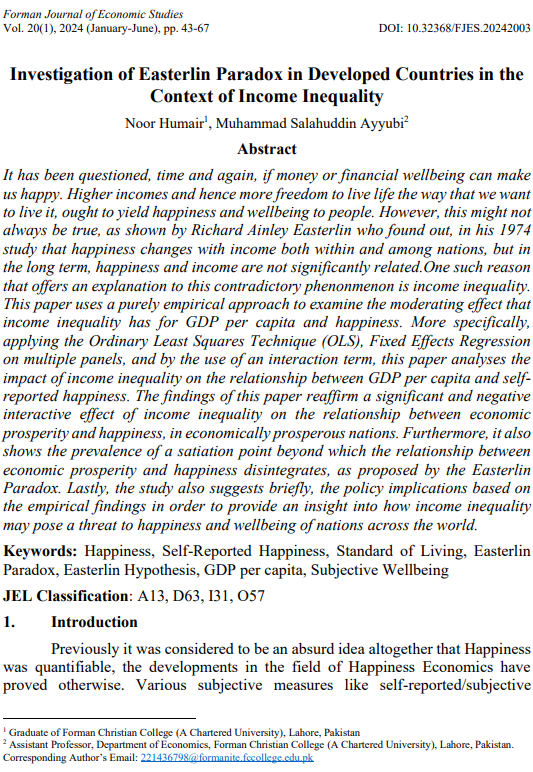Investigation of Easterlin Paradox in Developed Countries in the Context of Income Inequality
Keywords:
Happiness, Self-Reported Happiness, Standard of Living, Easterlin Paradox, Easterlin Hypothesis, GDP per capita, Subjective WellbeingAbstract
It has been questioned, time and again, if money or financial wellbeing can make us happy. Higher incomes and hence more freedom to live life the way that we want to live it, ought to yield happiness and wellbeing to people. However, this might not always be true, as shown by Richard Ainley Easterlin who found out, in his 1974 study that happiness changes with income both within and among nations, but in the long term, happiness and income are not significantly related. One such reason that offers an explanation to this contradictory phenonmenon is income inequality. This paper uses a purely empirical approach to examine the moderating effect that income inequality has for GDP per capita and happiness. More specifically, applying the Ordinary Least Squares Technique (OLS), Fixed Effects Regression on multiple panels, and by the use of an interaction term, this paper analyses the impact of income inequality on the relationship between GDP per capita and selfreported happiness. The findings of this paper reaffirm a significant and negative interactive effect of income inequality on the relationship between economic prosperity and happiness, in economically prosperous nations. Furthermore, it also shows the prevalence of a satiation point beyond which the relationship between economic prosperity and happiness disintegrates, as proposed by the Easterlin Paradox. Lastly, the study also suggests briefly, the policy implications based on the empirical findings in order to provide an insight into how income inequality may pose a threat to happiness and wellbeing of nations across the world.





